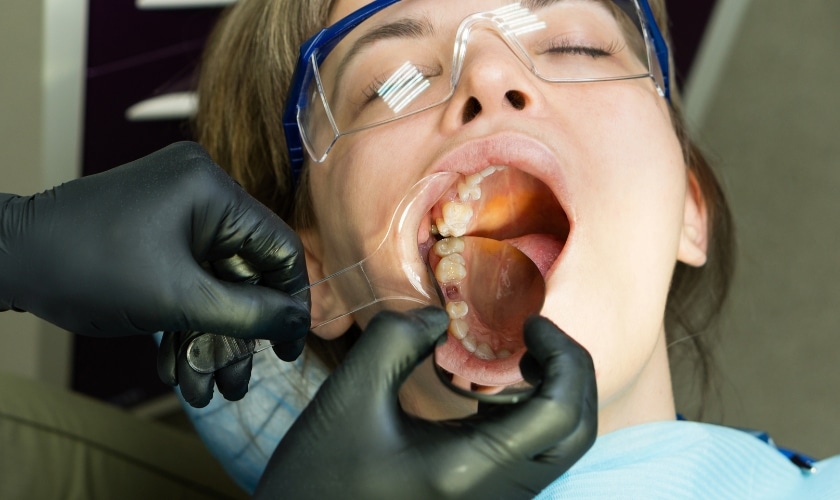The Impact of Diet on Dental Health: Foods to Avoid for Cavity Prevention
By :
Affordable Dentist | January 23, 2024
In the hustle of our daily lives, we often overlook a critical aspect of our well-being, like cavity prevention. The choices we make in our diet have a profound impact on the health of our teeth. While we diligently brush and floss, the foods we consume can either fortify or harm our dental fortifications.
Understanding the Relation Between Diet and Dental Health
The correlation between diet and dental health is profound. What you consume can either bolster your teeth's defenses or pave the way for cavities and other dental issues. It's not just about avoiding sugary treats; the type of food, its acidity, and its impact on saliva production all play pivotal roles.
The Enemy Within: Foods That Spell Trouble for Your Teeth
High-Sugar Culprits
Sugary foods are the arch-nemesis of dental health. They provide a feast for harmful bacteria, leading to acid production that erodes enamel. Candies, sodas, and pastries are notorious culprits. Cavity prevention can be done by repelling these high-sugar foods.
Sticky Sweets
While all sugary foods pose a threat, sticky sweets like caramel and toffees cling to your teeth, creating a haven for bacteria and accelerating the risk of cavities.
Acidic Menace
Acidic foods and beverages, although not sweet, can be equally harmful. Citrus fruits, tomatoes, and acidic drinks contribute to enamel erosion, weakening the teeth over time.
Starchy Snacks
Starchy snacks like chips and crackers might seem harmless, but they break down into sugars, providing a breeding ground for bacteria. Opt for healthier alternatives to prevent cavities.
The Role of pH
Understanding the pH scale is crucial in comprehending the effect of different foods on dental health. Acidic foods have lower pH levels, contributing to enamel erosion. Maintaining a balanced pH in your diet is pivotal for dental well-being.
A Tooth-Friendly Diet: What to Include
Calcium-rich Foods: Incorporating calcium-rich foods like dairy products, leafy greens, and almonds strengthens teeth. Calcium acts as a mineral shield, protecting enamel from decay.
Crunchy Fruits and Vegetables: Fruits and vegetables with high water content, like apples and celery, stimulate saliva production. This natural defense mechanism helps in neutralizing acids and washing away food particles.
Water – The Ultimate Hydrator: Water is not only essential for overall health but also for oral well-being. It washes away debris, neutralizes acids, and keeps the mouth hydrated, preventing dry mouth, a condition conducive to cavities.
Green Tea Goodness: Green tea contains antioxidants that combat bacteria, reducing the risk of cavities. It also helps control inflammation and promote gum health.
Practical Tips for Dental Health
Maintaining optimal dental health extends beyond dietary choices. While a tooth-friendly diet lays a robust foundation, integrating practical tips into your daily routine ensures comprehensive care for your teeth. Here are actionable steps to enhance your dental well-being:
Mindful Snacking:
Snacking habits play a pivotal role in dental health. Frequent between-meal snacks, especially sugary or acidic ones, expose your teeth to prolonged periods of vulnerability. If you find yourself craving a snack, opt for tooth-friendly choices such as cheese, yogurt, or raw vegetables. These substitutes not only quell your appetite for snacks but also improve the general health of your teeth.
Proper Oral Hygiene Practices:
The cornerstone of good dental health is a consistent and thorough oral hygiene routine. Plaque can be eliminated, and cavities can be avoided by using fluoride toothpaste to brush your teeth at least twice a day. Use a soft-bristled toothbrush and pay attention to brushing every surface of your teeth. Additionally, flossing daily removes plaque and debris between teeth, areas often missed by brushing alone. Add mouthwash to your daily regimen to freshen your breath and provide further bacterial protection.
Regular Dental Check-ups:
Scheduling regular dental check-ups is crucial for cavity prevention. Dentists have the early detection skills to identify possible problems before they become more serious. Professional cleanings also get rid of tartar, or hardened plaque, which is impossible to get rid of with just routine brushing and flossing. Aim for dental visits every six months or as recommended by your dentist.
In the grand tapestry of health, dental well-being is a vital thread. Knowing how nutrition affects dental health gives us the power to make educated decisions and promotes a radiant smile that reflects general well-being. While the occasional indulgence is permissible, a mindful approach to our diet can go a long way in preventing cavities and ensuring a healthy, confident grin. Remember, your diet is not just about nourishing your body; it's also about nurturing your pearly whites.


